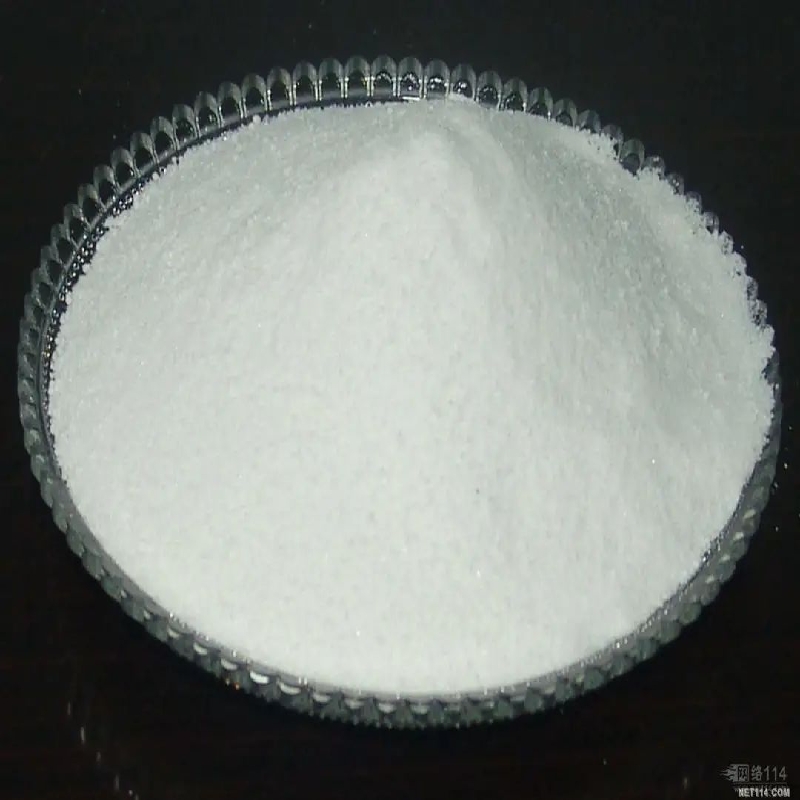-
Categories
-
Pharmaceutical Intermediates
-
Active Pharmaceutical Ingredients
-
Food Additives
- Industrial Coatings
- Agrochemicals
- Dyes and Pigments
- Surfactant
- Flavors and Fragrances
- Chemical Reagents
- Catalyst and Auxiliary
- Natural Products
- Inorganic Chemistry
-
Organic Chemistry
-
Biochemical Engineering
- Analytical Chemistry
-
Cosmetic Ingredient
- Water Treatment Chemical
-
Pharmaceutical Intermediates
Promotion
ECHEMI Mall
Wholesale
Weekly Price
Exhibition
News
-
Trade Service
Zirconium sulfate is a widely used chemical in the chemical industry, employed in various applications due to its unique properties.
It is known for its excellent chemical stability, high density and low solubility, which make it a popular choice for various industrial processes.
However, the use of zirconium sulfate, like any other chemical, comes with certain safety concerns.
In this article, we will explore the safety of zirconium sulfate and the precautions that should be taken while handling it.
Physical and Chemical Properties
Zirconium sulfate is a white or slightly yellowish solid that is highly soluble in water.
It has a high density of 5.
8 g/cm3 and a melting point of 1780 K.
Zirconium sulfate is highly insoluble in organic solvents but soluble in strong acids and alkalies.
Its high insolubility in organic solvents makes it an ideal candidate for applications where organic solvents are not desired.
Toxicity and Safety
Zirconium sulfate is generally considered safe to handle and use in industrial applications, as long as proper safety measures are taken.
However, ingestion of large amounts of zirconium sulfate can cause gastrointestinal irritation and may be harmful to human health.
Chronic exposure to zirconium sulfate may also cause skin irritation and allergic reactions in some individuals.
Respiratory Hazards
Zirconium sulfate is not classified as a respiratory hazard by the OSHA, but it is known to generate fine particles that can be inhaled.
Prolonged exposure to zirconium sulfate dust can cause respiratory problems, such as coughing, wheezing, and shortness of breath.
It is important to wear appropriate protective equipment, such as respirators, while handling zirconium sulfate.
Fire and Explosion Hazards
Like many other chemicals, zirconium sulfate can be highly reactive and may ignite or explode if it comes in contact with a source of heat or spark.
It is important to store zirconium sulfate in a cool, dry place and away from any sources of heat or ignition.
Handling and Storage
Zirconium sulfate should be handled with care and in accordance with the manufacturer's instructions.
It should be stored in a cool, dry place, away from any sources of heat or ignition.
It should also be stored in a well-ventilated area to prevent the buildup of dust.
Zirconium sulfate should be stored in appropriate containers to prevent any contamination and spillage.
Preparation and Use
When preparing zirconium sulfate solutions, it is essential to wear appropriate protective equipment, such as gloves, goggles, and lab coats.
The solution should be handled carefully and minimize any contact with the skin.
The solution should be used immediately after preparation and any unused portion should be properly disposed of.
Safety Precautions in Industrial Applications
In industrial applications, zirconium sulfate is often used in the production of ceramics, glass, and enamel.
It is also used in the chemical industry as a catalyst, flocculant, andodesicant, and in the production of dyes and pigments.
In all these applications, it is important to follow proper safety protocols to minimize the risk of accidents and injuries.
Conclusion
Zirconium sulfate is a versatile chemical that has many industrial applications.
However, it is important to handle it with care and follow proper safety protocols to minimize the risk of accidents and injuries.
Prolonged exposure to zirconium sulfate dust can cause respiratory problems, and ingestion of large amounts can be harmful to human health.
It is also highly reactive and can






